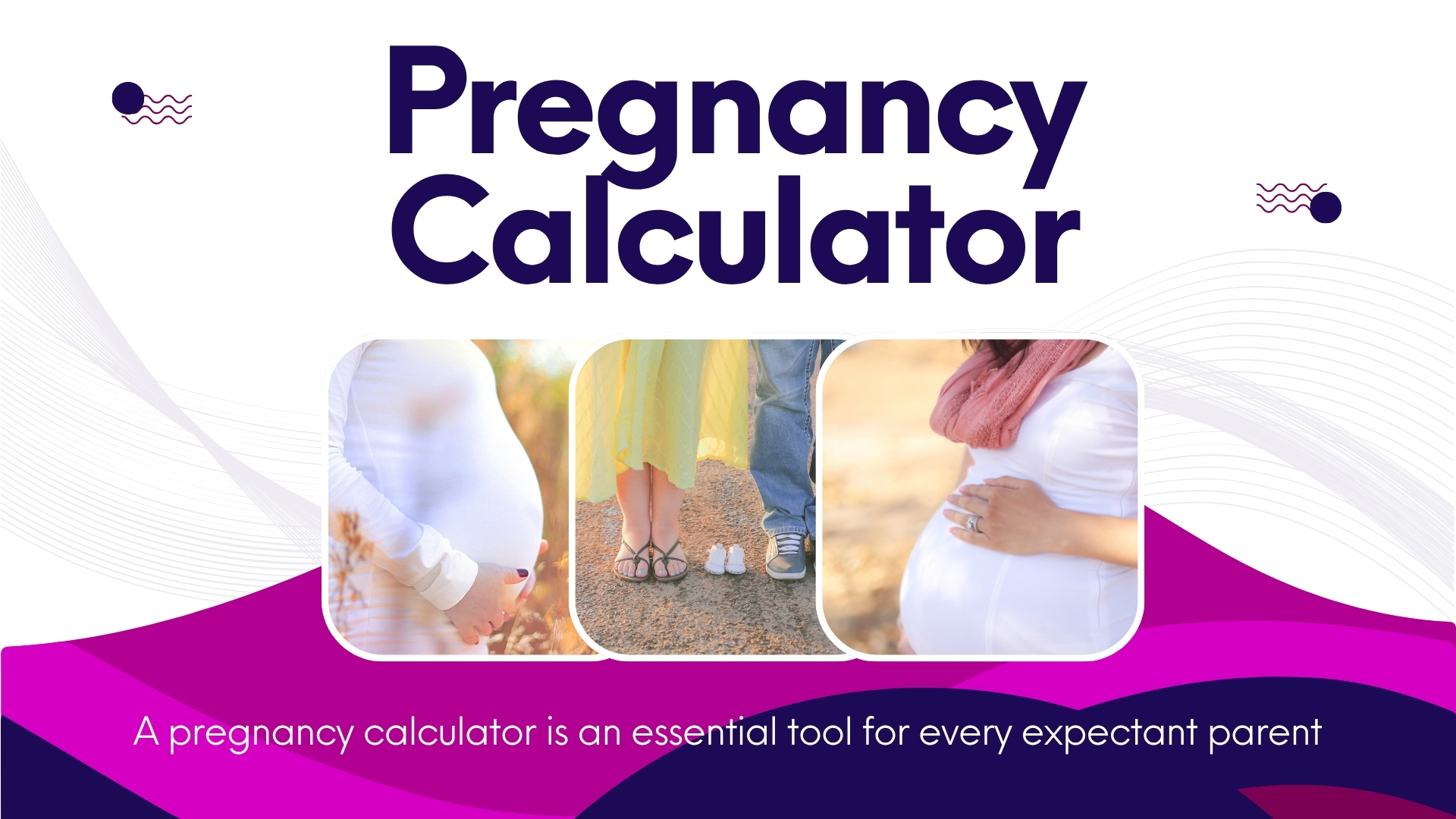Pregnancy is a transformative journey filled with excitement, anticipation, and a whirlwind of questions. One of the first and most important questions expectant parents ask is, “When is my baby due?” This is where a pregnancy calculator becomes an invaluable tool. Whether you’re newly pregnant or planning to conceive, understanding how to calculate your due date and track your pregnancy week by week can help you prepare for each stage of this incredible experience.
In this comprehensive guide, we’ll explore everything you need to know about pregnancy calculators: what they are, how they work, and why they’re essential for every mom-to-be. We’ll also walk you through the science behind due date estimation, offer a detailed week-by-week breakdown of pregnancy, and answer the most frequently asked questions. By the end, you’ll feel empowered and informed, ready to embrace the journey ahead with confidence.
How Does a Pregnancy Calculator Work?

A pregnancy calculator is a digital or manual tool designed to estimate your due date and track the progress of your pregnancy. It uses information such as the first day of your last menstrual period (LMP) or the date of conception to provide an estimated due date and indicate how many weeks pregnant you are.
The Science Behind Due Date Calculation
Most pregnancy calculators rely on the Naegele’s Rule, which assumes a typical pregnancy lasts about 280 days (40 weeks) from the first day of your last menstrual period. Here’s how it works:
- First Day of Last Menstrual Period (LMP): Add 280 days (or 40 weeks) to this date.
- Date of Conception: Add 266 days (or 38 weeks) to this date.
Example Calculation
If your LMP was January 1st:
- Add 280 days (40 weeks)
- Estimated due date: October 8th
Types of Pregnancy Calculators
There are several types of pregnancy calculators available:
- Online Pregnancy Calculators: Enter your LMP or conception date, and the calculator does the rest.
- Pregnancy Wheel (Obstetric Wheel): A manual tool used by healthcare providers.
- Mobile Apps: Many pregnancy tracking apps offer built-in calculators and additional features.
Key Features of a Good Pregnancy Calculator
- Accuracy: Uses standard medical formulas.
- Customizability: Allows input of LMP, conception date, or ultrasound date.
- Week-by-Week Tracking: Provides detailed information for each week of pregnancy.
- Additional Tools: Some calculators include ovulation predictors, weight trackers, and more.
Why Use a Pregnancy Calculator?
Using a pregnancy calculator offers numerous benefits:
- Early Planning: Know your due date and prepare for prenatal appointments.
- Week-by-Week Guidance: Understand what’s happening with your baby and your body.
- Peace of Mind: Reduce anxiety by having accurate, up-to-date information.
- Partner Involvement: Helps partners stay engaged and informed.
Step-by-Step Guide: How to Use a Pregnancy Calculator
- Gather Information:
- First day of your last menstrual period (LMP)
- Average length of your menstrual cycle (if irregular)
- Date of conception (if known)
- Enter Details:
- Input the required information into the calculator.
- Review Results:
- The calculator will display your estimated due date and current week of pregnancy.
- Track Progress:
- Use the week-by-week breakdown to monitor changes and milestones.
Pregnancy Calculator Comparison Table
| Feature | Online Calculator | Pregnancy Wheel | Mobile App |
|---|---|---|---|
| Accuracy | High | High | High |
| Ease of Use | Very Easy | Moderate | Very Easy |
| Week-by-Week Tracking | Yes | No | Yes |
| Additional Features | Sometimes | No | Yes |
| Accessibility | 24/7 Online | In Clinic | Anytime |
Week-by-Week Pregnancy Breakdown
Understanding what happens each week helps you connect with your baby and prepare for every stage.
First Trimester (Weeks 1–12)
- Weeks 1–4: Fertilization and implantation. You may not even realize you’re pregnant yet!
- Weeks 5–8: Major organs begin to form. Heartbeat can often be detected by ultrasound.
- Weeks 9–12: Baby’s features become more defined. Morning sickness and fatigue are common.
Second Trimester (Weeks 13–26)
- Weeks 13–16: Baby grows rapidly; you may start to show.
- Weeks 17–20: Gender may be visible on ultrasound. You might feel the first flutters of movement.
- Weeks 21–26: Baby’s senses develop. You’ll likely have more energy.
Third Trimester (Weeks 27–40)
- Weeks 27–32: Baby gains weight and practices breathing movements.
- Weeks 33–36: Baby moves into position for birth.
- Weeks 37–40: Full term! Baby is ready to meet you.
Benefits of Tracking Pregnancy with a Calculator
- Personalized Information: Get updates tailored to your stage of pregnancy.
- Preparation: Plan for doctor visits, maternity leave, and baby essentials.
- Health Monitoring: Track symptoms, weight gain, and milestones.
- Emotional Support: Stay connected with your pregnancy journey.
Related Keywords
- Due date calculator
- Pregnancy week calculator
- How many weeks pregnant am I?
- Conception calculator
- Pregnancy tracker
- Gestational age calculator
FAQ
How accurate is a pregnancy calculator?
Pregnancy calculators provide an estimate based on standard formulas. The actual due date may vary, as only about 5% of babies are born on their exact due date. Ultrasound scans in early pregnancy can offer more precise dating.
Can I use a pregnancy calculator if my cycles are irregular?
Yes, but the estimate may be less accurate. If you know your conception date or have had an early ultrasound, use that information for better accuracy.
What if I don’t know my last menstrual period?
If you’re unsure of your LMP, use the date of conception (if known) or schedule an ultrasound for accurate dating.
Should I rely solely on a pregnancy calculator?
No. While pregnancy calculators are helpful, always confirm your due date and pregnancy progress with your healthcare provider.
How often should I use a pregnancy calculator?
You can use it as often as you like, especially to track your progress week by week. Many apps offer daily or weekly updates.
Conclusion
A pregnancy calculator is an essential tool for every expectant parent. It not only helps you estimate your due date but also guides you through each week of pregnancy, offering valuable insights and peace of mind. Remember, while these calculators are highly useful, they should complement—not replace—regular prenatal care and consultations with your healthcare provider.
Whether you choose an online calculator, a mobile app, or a traditional pregnancy wheel, the key is to stay informed and proactive throughout your pregnancy journey. Embrace each milestone, prepare for what’s ahead, and cherish this special time as you await the arrival of your little one.
Pregnancy Calculator Tools
Ready to start your journey? Try a pregnancy calculator today and take the first step towards a healthy, happy pregnancy!





